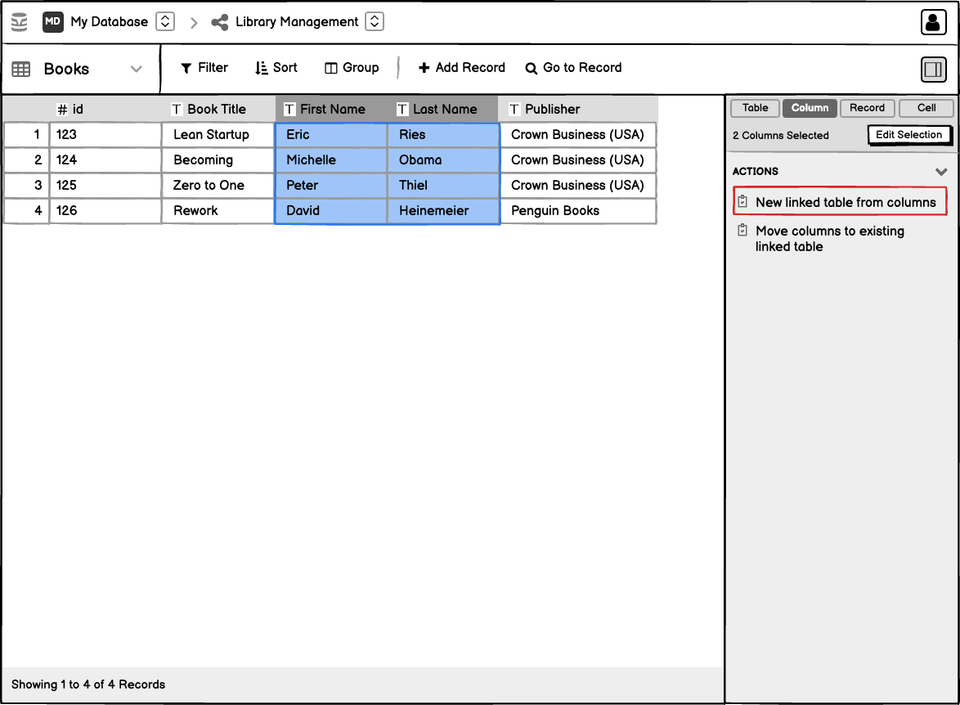Mathesar is An Open-source Low-Code Database Interface
Airtable is a popular low-code web service that allows you to manage your data with your team. Moreover, customize your workflow, work on complex data sheets.
Here, we provide you a simple open-source alternative for it, that allows you to do almost the same, with more control of your data.
Mathesar is a free open-source data management and low-code platform that allows you to import/ export your datasheets, control your database columns/ fields, search with full-text search support, and more.
The project is currently in progress, so new features can be expected soon. Although, unlike similar projects, it targets technically skilled users.

Potential use cases for Mathesar include publishing and exploring public datasets, running business processes such inventory management and project tracking, providing a ready-made interface for speedy data entry and custom reporting, collecting and processing data from large groups of people, simple data cleaning and analysis, and automatic web API generation.
With Mathesar you can:
- Aggregate data from multiple table.
- Collect data from many sources in one table.
- Bookmark subset of data in one table.
- Summarize data
- Compute and manipulate data from one or multiple columns into a new column.
Furthermore, Mathesar, is built on top of Django and uses PostgreSQL database, can be configured to use MySQL, Oracle, SQLite, and MS SQL Server. However, it will require some work from your side.
Why you may consider Mathesar?

Here are few reasons why you need to consider Mathesar in your work:
Interoperability and Data Portability
Data stored using most comparable tools cannot be modified by other software. Mathesar uses a general purpose database (Postgres) with a thriving ecosystem of interoperable tools.
Approachable User Experience
Existing tools either limit available features or focus on power users. Mathesar meets users at their technical skill level while also supporting advanced features and encouraging learning.
Data Integrity and Reuse
Spreadsheets and low code platforms don’t do much by default to help you make sure data is consistent and this limits reuse potential. Databases are good at this by design.
Open Source Infrastructure
Data is valuable and shouldn’t be tied to using a specific proprietary service. The public needs open source, decentralized, and private infrastructure for people to manage their own data.
User cases
- Manage large data sets
- Inventory management
- CRM building
- Event management and planning
- Expense tracking
- Accounting
- As a basic data entry tool
- Collect and process data from public and private sources
- Automatically generate REST APIs to interact with connected database
Features
- Easy installation using Docker and Docker-Compose
- Clean clutter-free user-interface
- It operates primary on PostgreSQL databases but can be configured to work with MySQL, MS SQL Server, and, SQLite.
- Easy to use with a straightforward interface
- Full-text search for fields
- Import and export your data in several formats
- Generate ready-to-use REST-API
- Manages large data sets
- Collect information from several sources.
- User groups and permissions.
- Auto-detect field types and formats
- Supports dozens of formulas.
- Supports complex queries.
- Comes with a strong query builder
License
The project is released under the GPL-3.0 License.

